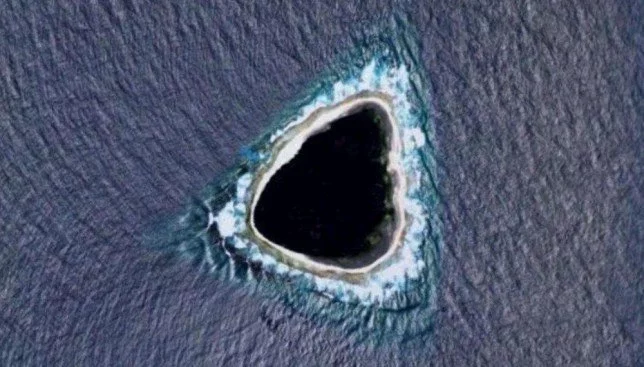
A pentagram, a disappearing island and, erm, a phallic-shaped landmass is just some of the features eagle-eyed Google Maps viewers have found adorning the surface of our ever-mysterious planet.
And in the middle of the Pacific, they've spotted a massive hole in the ocean.
Well, not quite, but it certainly looks strange at first glance.
A shot over the middle of the Pacific appears to show a ridge surrounding an eerie black pit, seemingly plunging deep into the Earth.
Other observers suggested it had been blurred out for national security reasons, suggesting it was a military base.
However, the captivating scene is simply an optical illusion. The 'hole' is in fact a densely packed forest of pisonia trees on the remote island of Vostok, 400 miles northwest of the tropical paradise Tahiti.
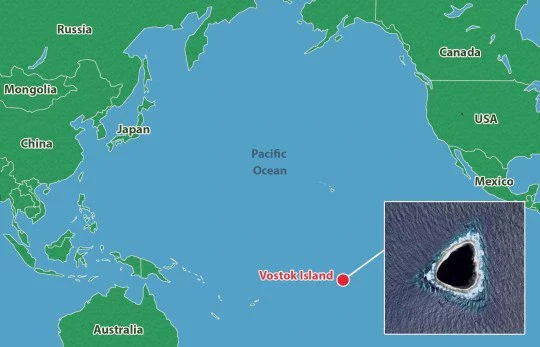
Vostok, it seems, is equally beautiful - but also deadly.
Pisonias are also known as bird killers, and tangled within its dense canopy are the bones of those that fell victim to it.
The reason? Its super-sticky seeds.
Trees spread their seeds by various mechanisms. They can use the wind to carry them or encourage animals to eat them and deposit them elsewhere out the other end.

But on a tiny island such as Vostok, there isn't really anywhere for the seeds to spread, and so the trees need a long-haul solution.
In this case, they have developed seeds that stick onto the seabirds that nest on the remote island - red-footed boobies, frigatebirds and black noddies - and fall off a long time later, hopefully on a different island.
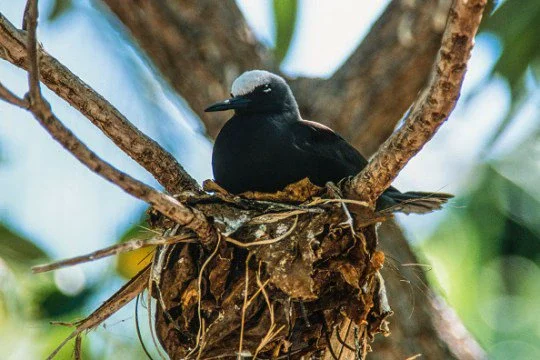
The seeds are so sticky however, the birds can become completely entangled in them. The sheer weight of the seeds can weigh birds down, preventing them from taking flight.
In more macabre scenes, they get wrapped up in the seeds and resin completely, dying of starvation, their mummified corpses hanging from the trees.
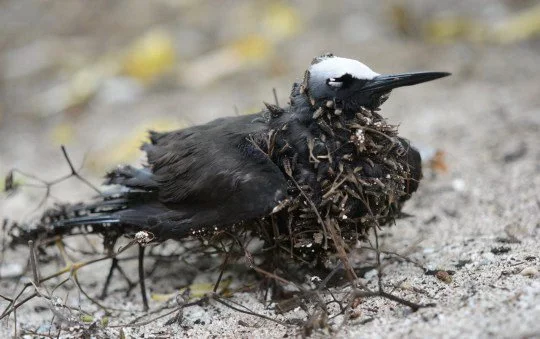
These 'bird-catcher' trees can have a devastating impact on bird populations. A study of Cousin Island in the Seychelles, which is also home to pisonia trees, found they killed a quarter of white terns and almost a tenth of tropical shearwaters.
And there appears to be no evolutionary benefit to the 'bird-catcher' trees' sticky seeds.
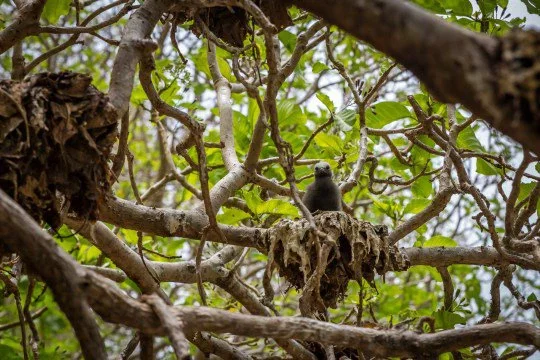
A study in the Journal of Tropical Ecology found the trees did not receive additional nutrients as the birds decomposed into the soil below, nor did seed-covered corpses wash onto neighbouring islands.
'The extreme stickiness of the seeds evidently evolved to resist removal by seabirds, and so facilitate long-distance dispersal,' wrote author Alan Burger.
'The [death] of some potential vectors is an unfortunate consequence... [and] pisonia plants do not benefit from fatal entanglements.'
So, there you have it. A giant hole in the ocean is in fact an island full of accidental bird killers.

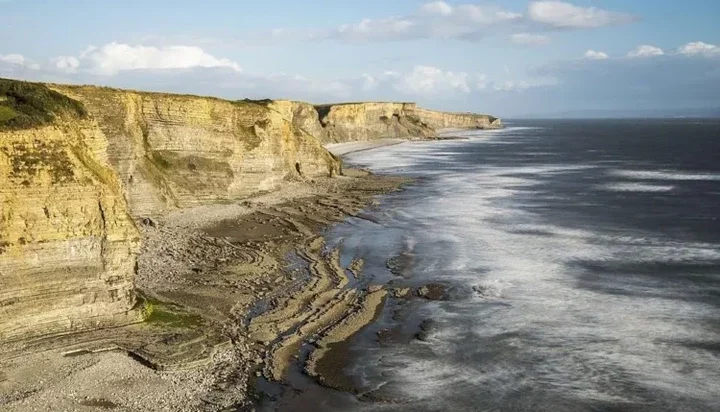















Comments